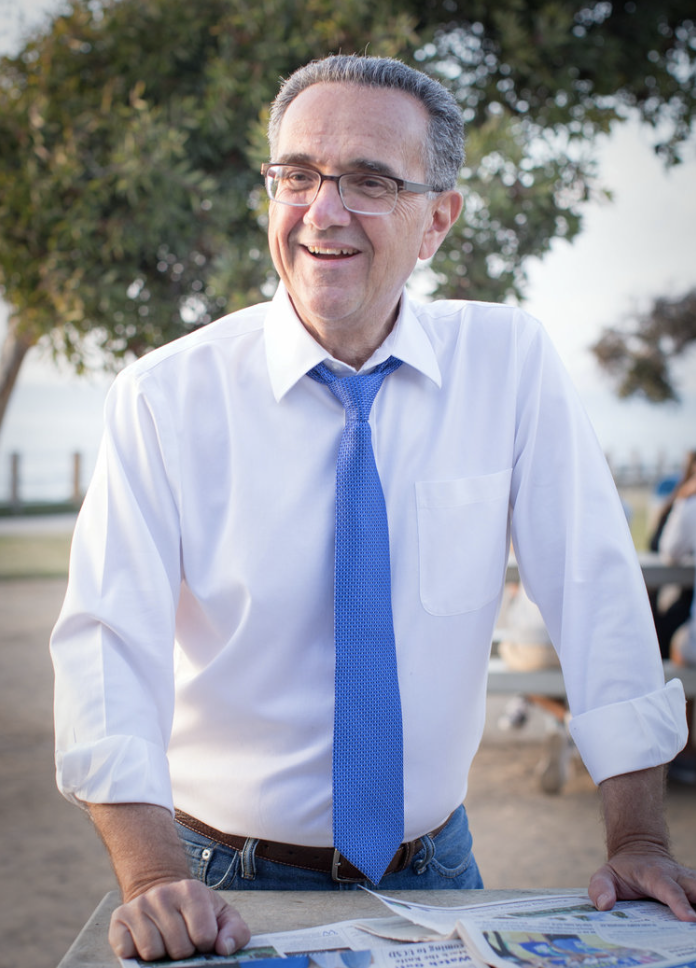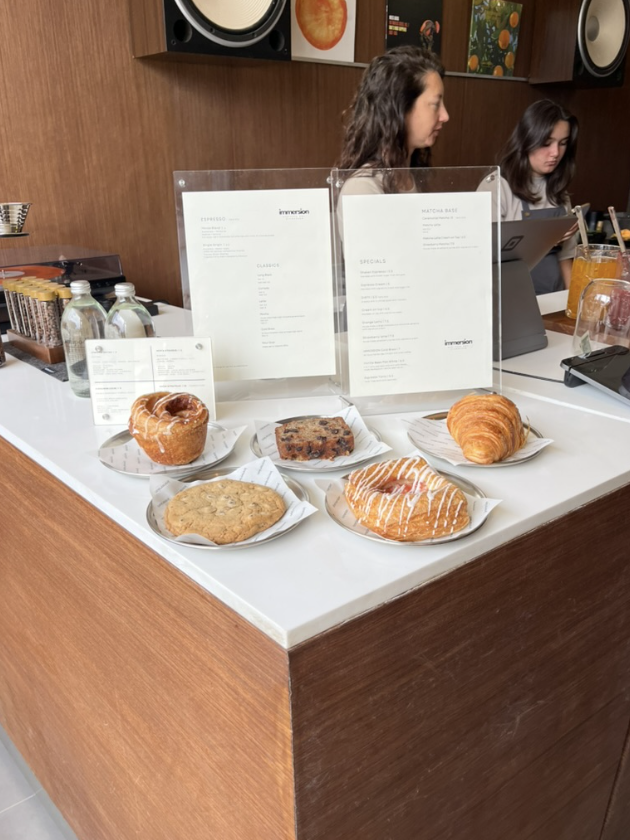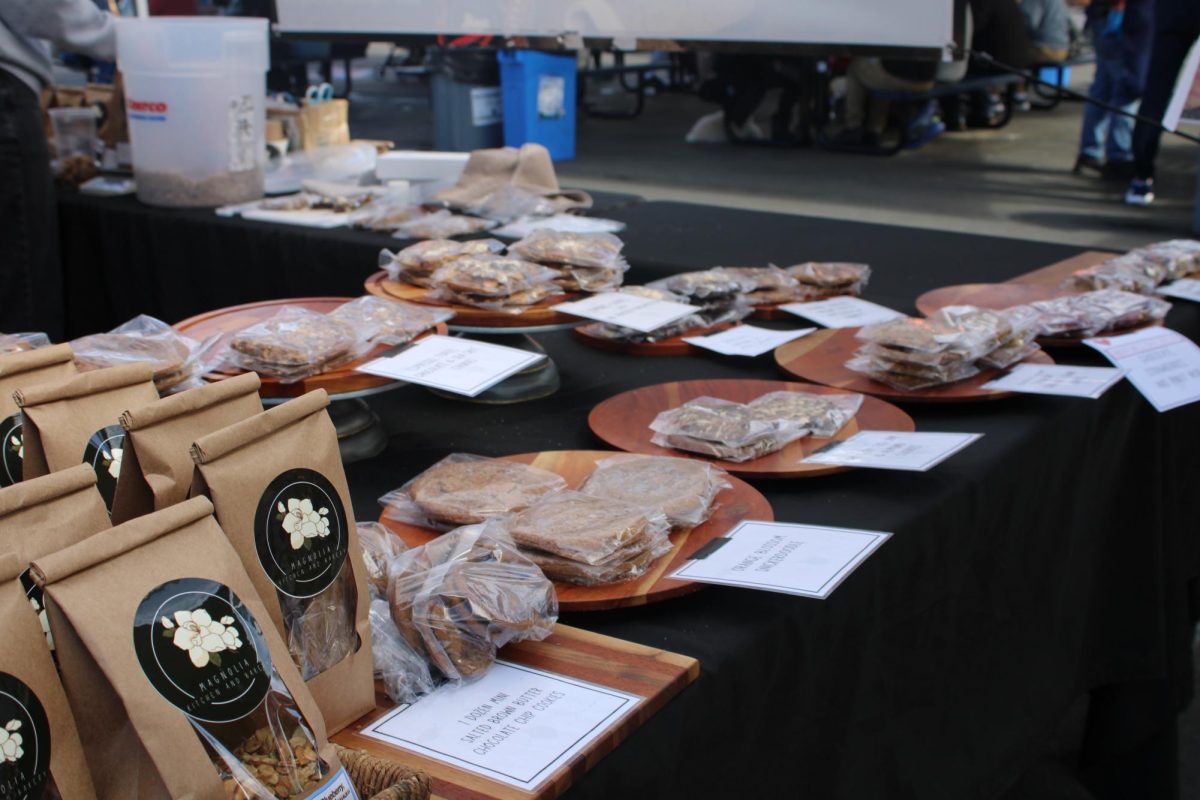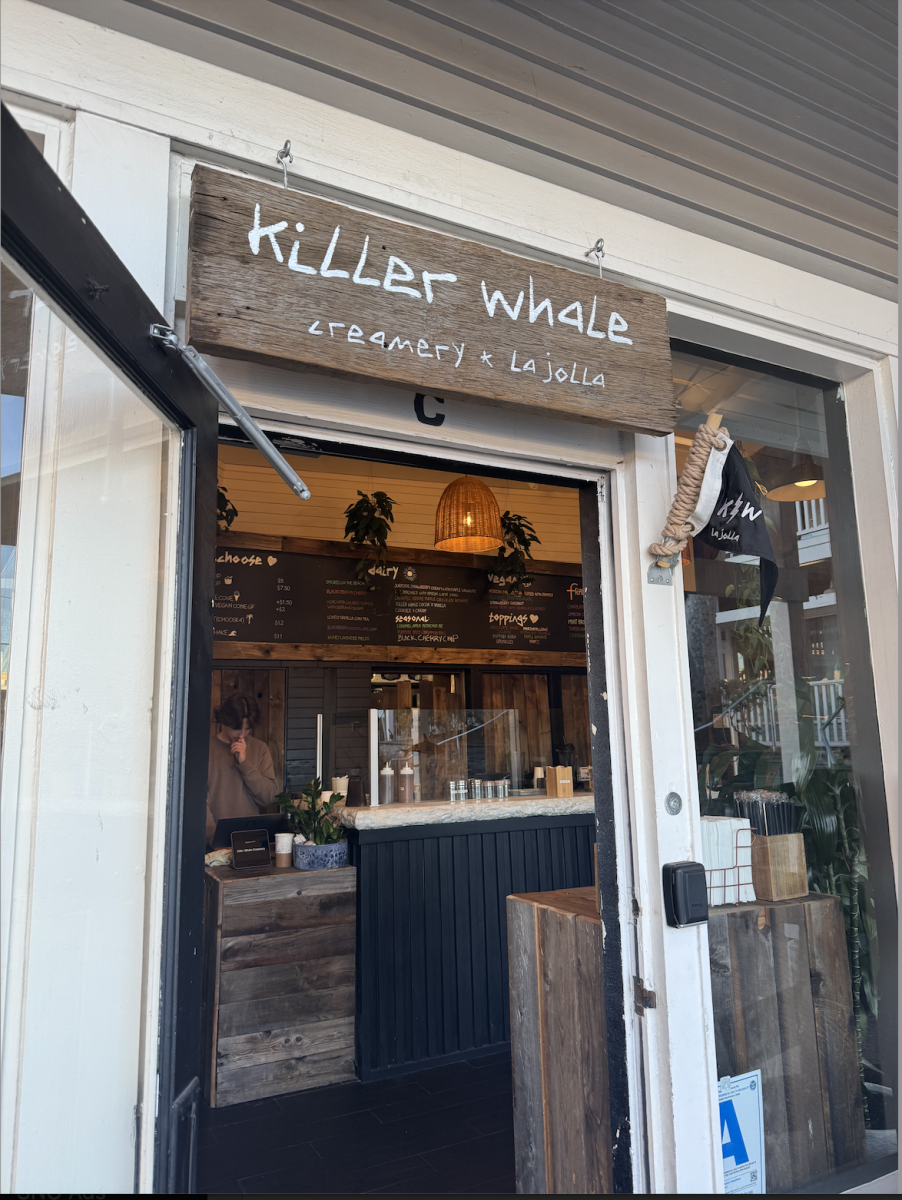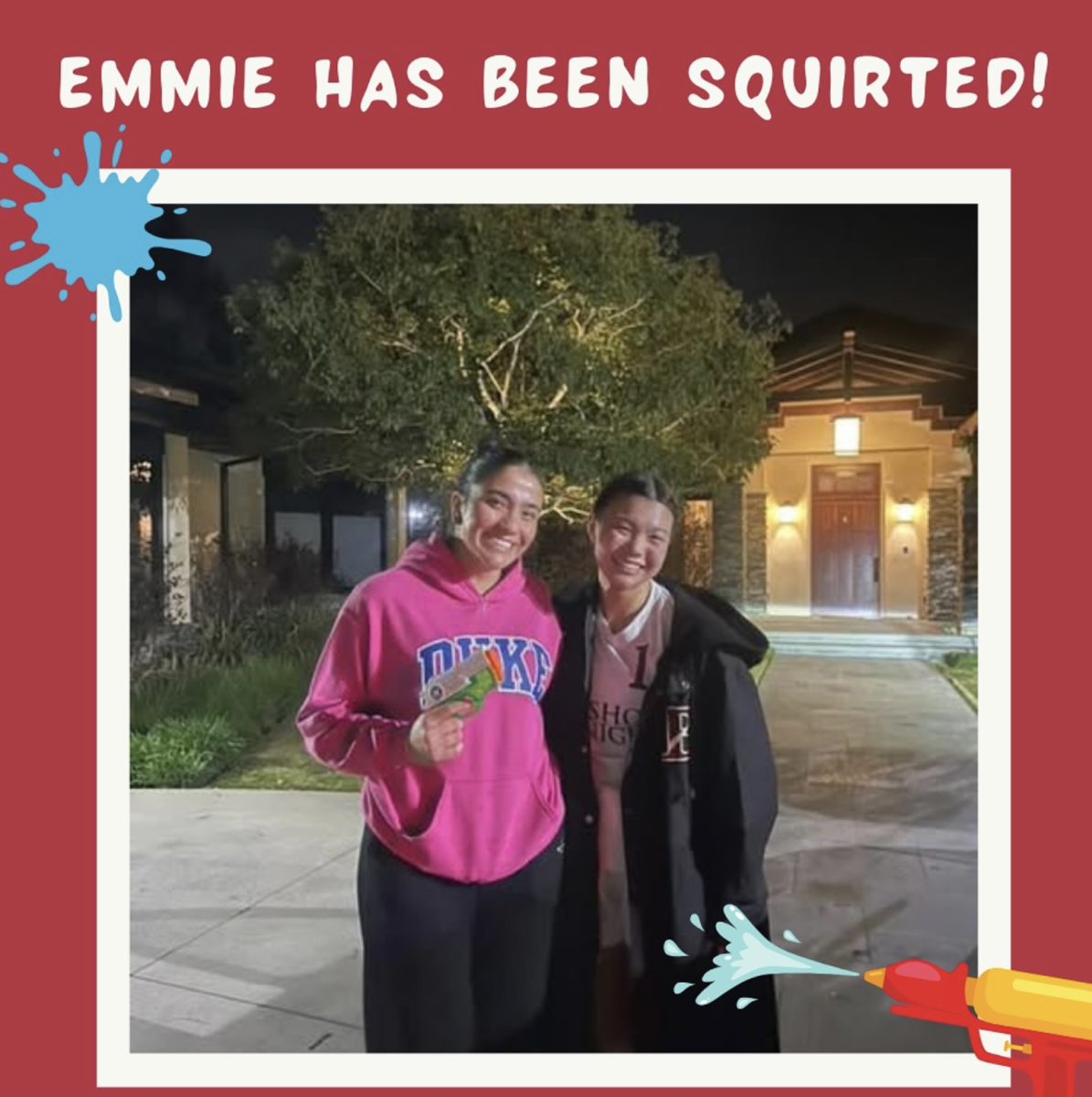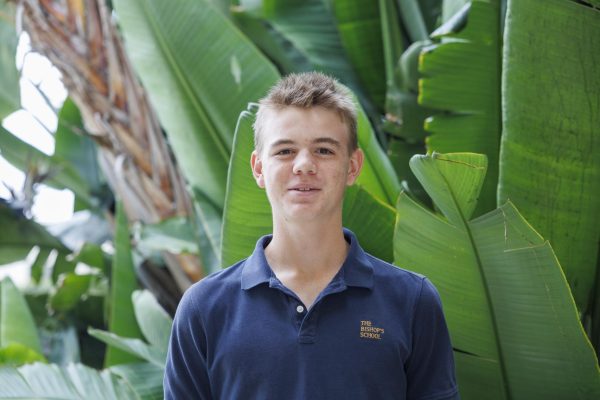Disclaimer: Councilmember Joe LaCava did not ask to be profiled for this article. The Tower is not affiliated with Mr. LaCava in any way, nor necessarily agree with his policies, beliefs, or ideals.
November is the month of many things: rich autumn colors, peak football season, joyful Thanksgiving festivities, but most of all, elections.
Early last month, Americans nationwide flocked to ballots to vote for city and state majors, governors, and legislators. But for cities that did not hold elections, such as San Diego, election day marked the start of reelection campaigns, signaled the opinions of populations a year out of major elections, and inspired local citizens to get to know their government.
With this in mind, and less than a year away from San Diego’s local elections (which Bishop’s students over the age of 17 1/2 will be eligible to vote in; see details here), The Tower sat down with Councilmember Joe LaCava — who represents San Diego’s District 1, which encompasses La Jolla.
Being a Councilmember in San Diego, Mr. LaCava’s focuses are specific to San Diego issues, most notably homelessness. “Since day one, my top priority has always been to do what I can to combat the homelessness crisis we currently face,” Mr. LaCava explained.
A major action he and other Councilmembers took this past July was enacting a homeless encampment ban in San Diego City Council, which passed by a 5-4 vote. Known as the ‘Unsafe Camping Ordinance’, the ban allows police to move a homeless person from their shelter-bed on the street, to a shelter. The ban is specifically for homeless camps within a two-block radius of schools, homeless shelters, transit hubs, and any open areas like public parks, canyons and riverbeds. Pretty much, anywhere deemed unsafe for the homeless people in the camp or citizens around the camp is subject to the ordinance.
While Mr. LaCava voted in favor of the ban; he now is not so sure he should have. “I voted for the ban because trained service workers that understand how to respectfully and safely approach homeless people were supposed to be the people to approach people camping in unsafe areas. But now, police officers are the ones enforcing the ban,” he reflected, “Frankly, they are scaring the homeless populations, and being counterproductive.”
Mr. LaCava’s honesty about his unease regarding a ban he originally endorsed reflects one of his day-one goals: transparency. “Since day one, transparency and ‘getting stuff done’ have been main goals at city hall [for me],” he said. Additionally, he wrote in a campaign letter his commitment to “a back-to-basics philosophy to deliver the city services you need and expect.”
Mr. LaCava attributes his priority of transparency to his personal opinions regarding local government. “I think a lot of the time, people do not actually know what local governments do…so often, national and state politics and legislation dominate headlines, leaving us all uneducated on our local governments, which are really important for combating issues our local communities face day to day.”
Mr. LaCava’s life before becoming a Councilmember in 2020 was far from politics. Mr. LaCava, a San Diego native, was raised by working class Italian immigrants. His father was a blue-collar factory worker and his mother a seamstress. He attributes his honest values to “his upbringing.”
Following college at San Diego State University (SDSU), he became a licensed civil engineer. His career spanned from public infrastructure to private housing to public policy. “I never really considered getting into local government, but my career always kept me close enough to have the chance if I wanted.” He explained that being a civil engineer allows him to “see how city policies actually translate on the ground,” which makes him “very prepared.”
His career took him across the U.S. and abroad at points, but since 1983, he has lived with Ms. Lorene LaCava, his wife and a retired public school teacher, in Bird Rock where they raised their two daughters. It was then that Mr. LaCava began engaging in public service for San Diego.
He sat on numerous local neighborhood and community boards, most notably in Bird Rock on the Bird Rock Community Council. “One of my more tangible impacts came before I was a Councilmember… I was one of the leaders in getting the roundabout project in downtown Bird Rock,” said Mr. LaCava. “I really wanted to ensure Bird Rock remained a quieter, small neighborhood, which required slow traffic,” he added.
Thanks to his notable impact in the Bird Rock and La Jolla area, he eventually became chairman of the La Jolla Community Planning Group. Along with that, Mr. LaCava continues working on citywide efforts on numerous other boards.
Then, a bit out of the blue, the chance to run for Councilmember presented itself. “The position almost chose me,” he began, “while I never expected to become a Councilmember, I always have cared about San Diego [so I] decided to run.”
Finally, in November 2020, Mr. LaCava won the District 1 election versus fellow independent Will Moore by over 15,000 votes (20% of total voters).
In his first three years on San Diego’s Council, Mr. LaCava has served as the chair of the City’s Environment Committee and Vice Chair of the Active Transportation & Infrastructure and Land Use & Housing Committees. A recent focus specific to District 1 was the Sea Lions in La Jolla Cove that got nationwide attention. The subheading of The New York Times article reads, “The San Diego City Council unanimously voted to close a 150-yard stretch of coastline known as Point La Jolla after selfie-taking visitors got too close to the pinnipeds.” It was Mr. LaCava who led the Council’s effort to initiate the vote. “I saw the Sea Lion issue as not just a San Diego issue, but more specifically a District 1 issue, and I made it a priority to find a safe solution that pleases both tourists, locals, and La Jolla’s unique marine life.”
Looking into the future — next November — Mr. LaCava officially announced the launching of his reelection campaign in September of 2023. In a letter addressed “Dear Friends,” Mr. LaCava explained that, “with so much accomplished in that short time, my commitment to public service is just as strong, even stronger.” He mentioned his priority of transparency: “I have worked to make the District 1 office more accessible and responsive to you. With my hard-working staff, phones are answered, emails returned, solutions offered.”
Finally, he wrote, “As a big city we have work to do: preserving public safety, sensible housing policy, addressing homelessness, repairing our streets and infrastructure, and responding to climate change.”
When asked if he had aspirations to run for state or national government positions, Mr. LaCava smiled. Sitting calmly in his office on the 12th floor of the City Council building in downtown, Mr. LaCava said, “I am just happy to be giving back to my city. It’s all I could have hoped for.”


